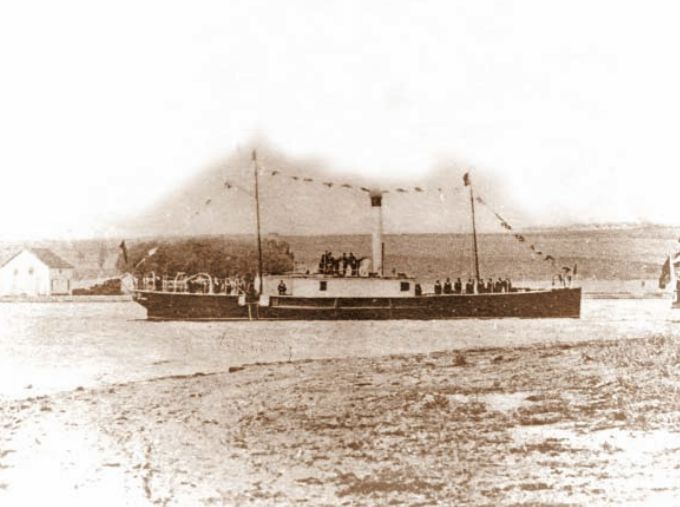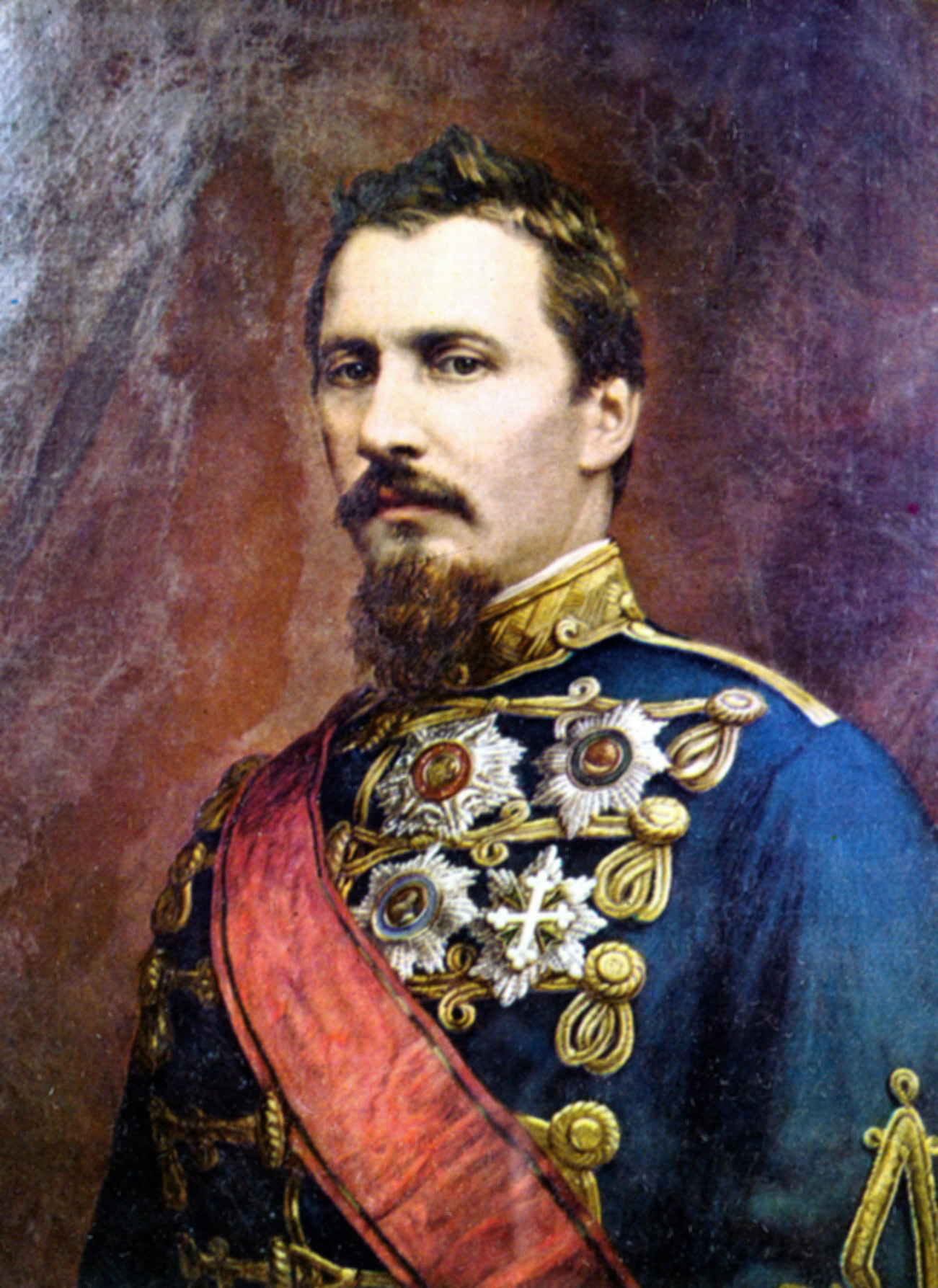|
Cornelia Emilian
Cornelia Emilian (; 1840–1910) was an Imperial Austrian-born Romanian journalist and women's rights activist. She was born in Zlatna, in the Principality of Transylvania, to a noble family.Ionela Băluță, "Apariția femeii ca actor social - a doua jumătate a secolului al XIX-lea", in ''Direcții și teme de cercetare în studiile de gen din România'', p. 71. Bucharest: Editura Colegiul Noua Europă, 2003, In 1858, she emigrated to Iași, the capital of Moldavia, soon to become the second city of the Romanian Old Kingdom.Ionela Băluță, ''La bourgeoise respectable'', p. 264. Bucharest: Editura Universității din București, 2008, There, she married Ștefan Emilian, a professor at the University of Iași and architect. Emilian founded the Romanian Women's Congress. During the Romanian War of Independence The Romanian War of Independence is the name used in Romanian historiography to refer to the Russo-Turkish War (1877–78), following which Romania, fighting on the Rus ... [...More Info...] [...Related Items...] OR: [Wikipedia] [Google] [Baidu] |
Imperial Austria
The Austrian Empire (german: link=no, Kaiserthum Oesterreich, modern spelling , ) was a Central-Eastern European multinational great power from 1804 to 1867, created by proclamation out of the realms of the Habsburgs. During its existence, it was the third most populous monarchy in Europe after the Russian Empire and the United Kingdom. Along with Prussia, it was one of the two major powers of the German Confederation. Geographically, it was the third-largest empire in Europe after the Russian Empire and the First French Empire (). The empire was proclaimed by Francis II in 1804 in response to Napoleon's declaration of the First French Empire, unifying all Habsburg possessions under one central government. It remained part of the Holy Roman Empire until the latter's dissolution in 1806. It continued fighting against Napoleon throughout the Napoleonic Wars, except for a period between 1809 and 1813, when Austria was first allied with Napoleon during the invasion of Russia ... [...More Info...] [...Related Items...] OR: [Wikipedia] [Google] [Baidu] |
Romanian Nobility
The boyars of Moldavia and Wallachia were the nobility of the Danubian Principalities of Moldavia and Wallachia. The title was either inherited or granted by the Hospodar, often together with an administrative function.Djuvara, p.131 The boyars held much of the political power in the principalities and, until the Phanariote era, they elected the Hospodar. As such, until the 19th century, the system oscillated between an oligarchy and an autocracy with the power concentrated in the hospodar's hands.Djuvara, p.135 Origins During the Middle Ages, Romanians lived in autonomous communities called obște which mixed private and common ownership, employing an open field system. The private ownership of land gained ground In the 14th and 15th centuries, leading to differences within the obște towards a stratification of the members of the community.Costăchel et al., p. 111 The name of the "boyars" (''boier'' in Romanian; the institution being called ''boierie'') was patented from the ... [...More Info...] [...Related Items...] OR: [Wikipedia] [Google] [Baidu] |
Austro-Hungarian Emigrants To Romania
Austria-Hungary, often referred to as the Austro-Hungarian Empire,, the Dual Monarchy, or Austria, was a constitutional monarchy and great power in Central Europe#Before World War I, Central Europe between 1867 and 1918. It was formed with the Austro-Hungarian Compromise of 1867 in the aftermath of the Austro-Prussian War and was dissolved shortly after its defeat in the World War I, First World War. Austria-Hungary was ruled by the House of Habsburg and constituted the last phase in the constitutional evolution of the Habsburg monarchy. It was a multinational state and one of Europe's major powers at the time. Austria-Hungary was geographically the second-largest country in Europe after the Russian Empire, at and the third-most populous (after Russia and the German Empire). The Empire built up the fourth-largest machine building industry in the world, after the United States, Germany and the United Kingdom of Great Britain and Ireland, United Kingdom. Austria-Hungary also b ... [...More Info...] [...Related Items...] OR: [Wikipedia] [Google] [Baidu] |
Romanian People In The Principality Of Transylvania (1711–1867)
Romanian may refer to: *anything of, from, or related to the country and nation of Romania **Romanians, an ethnic group **Romanian language, a Romance language *** Romanian dialects, variants of the Romanian language ** Romanian cuisine, traditional foods **Romanian folklore The folklore of Romania is the collection of traditions of the Romanians. A feature of Romanian culture is the special relationship between folklore and the learned culture, determined by two factors. First, the rural character of the Romanian ... * Romanian (stage), a stage in the Paratethys stratigraphy of Central and Eastern Europe *'' The Romanian'' newspaper *'' The Romanian: Story of an Obsession'', a 2004 novel by Bruce Benderson * * {{disambiguation Language and nationality disambiguation pages ... [...More Info...] [...Related Items...] OR: [Wikipedia] [Google] [Baidu] |
People From Zlatna
A person ( : people) is a being that has certain capacities or attributes such as reason, morality, consciousness or self-consciousness, and being a part of a culturally established form of social relations such as kinship, ownership of property, or legal responsibility. The defining features of personhood and, consequently, what makes a person count as a person, differ widely among cultures and contexts. In addition to the question of personhood, of what makes a being count as a person to begin with, there are further questions about personal identity and self: both about what makes any particular person that particular person instead of another, and about what makes a person at one time the same person as they were or will be at another time despite any intervening changes. The plural form "people" is often used to refer to an entire nation or ethnic group (as in "a people"), and this was the original meaning of the word; it subsequently acquired its use as a plural form of per ... [...More Info...] [...Related Items...] OR: [Wikipedia] [Google] [Baidu] |
1910 Deaths
Year 191 ( CXCI) was a common year starting on Friday (link will display the full calendar) of the Julian calendar. At the time, it was known as the Year of the Consulship of Apronianus and Bradua (or, less frequently, year 944 ''Ab urbe condita''). The denomination 191 for this year has been used since the early medieval period, when the Anno Domini calendar era became the prevalent method in Europe for naming years. Events By place Parthia * King Vologases IV of Parthia dies after a 44-year reign, and is succeeded by his son Vologases V. China * A coalition of Chinese warlords from the east of Hangu Pass launches a punitive campaign against the warlord Dong Zhuo, who seized control of the central government in 189, and held the figurehead Emperor Xian Emperor Xian of Han (2 April 181 – 21 April 234), personal name Liu Xie (劉協), courtesy name Bohe, was the 14th and last emperor of the Eastern Han dynasty in China. He reigned from 28 September 189 until 1 ... [...More Info...] [...Related Items...] OR: [Wikipedia] [Google] [Baidu] |
1840 Births
__NOTOC__ Year 184 ( CLXXXIV) was a leap year starting on Wednesday (link will display the full calendar) of the Julian calendar. At the time, it was known as the Year of the Consulship of Eggius and Aelianus (or, less frequently, year 937 ''Ab urbe condita''). The denomination 184 for this year has been used since the early medieval period, when the Anno Domini calendar era became the prevalent method in Europe for naming years. Events By place China * The Yellow Turban Rebellion and Liang Province Rebellion break out in China. * The Disasters of the Partisan Prohibitions ends. * Zhang Jue leads the peasant revolt against Emperor Ling of Han of the Eastern Han Dynasty. Heading for the capital of Luoyang, his massive and undisciplined army (360,000 men), burns and destroys government offices and outposts. * June – Ling of Han places his brother-in-law, He Jin, in command of the imperial army and sends them to attack the Yellow Turban rebels. * Winter – Zha ... [...More Info...] [...Related Items...] OR: [Wikipedia] [Google] [Baidu] |
Familia (magazine)
The Romanian-language ''Familia'' literary magazine was first published by Iosif Vulcan in Budapest from 5 June 1865 to 17 April 1880. The magazine moved to Oradea Oradea (, , ; german: Großwardein ; hu, Nagyvárad ) is a city in Romania, located in Crișana, a sub-region of Transylvania. The county seat, seat of Bihor County, Oradea is one of the most important economic, social and cultural centers in the ... (''Nagyvárad'') and continued publication from 27 April 1880 to 31 December 1906. Several new series of the magazine were subsequently published: * Serie II, 1926–1928 * Serie III 1934 - 1943 * Serie IV 1944 - 1945 * Serie V 1965 - 2020 * Serie VI 2021 - present References External links Revista Familia Official Web Site [...More Info...] [...Related Items...] OR: [Wikipedia] [Google] [Baidu] |
Romanian War Of Independence
The Romanian War of Independence is the name used in Romanian historiography to refer to the Russo-Turkish War (1877–78), following which Romania, fighting on the Russian side, gained independence from the Ottoman Empire. On , Romania and the Russian Empire signed a treaty at Bucharest under which Russian troops were allowed to pass through Romanian territory, with the condition that Russia respected the integrity of Romania. Consequently, the mobilization of the Romanian troops also began, and about 120,000 soldiers were massed in the south of the country to defend against an eventual attack of the Ottoman forces from south of the Danube. On , Russia declared war on the Ottoman Empire and its troops entered Romania through the newly built Eiffel Bridge, on their way to the Ottoman Empire. Due to great losses, the Russian Empire asked Romania to intervene. On , the first Romanian Army units crossed the Danube and joined forces with the Russian Army. Romanian proclamation of in ... [...More Info...] [...Related Items...] OR: [Wikipedia] [Google] [Baidu] |
Romania
Romania ( ; ro, România ) is a country located at the crossroads of Central Europe, Central, Eastern Europe, Eastern, and Southeast Europe, Southeastern Europe. It borders Bulgaria to the south, Ukraine to the north, Hungary to the west, Serbia to the southwest, Moldova to the east, and the Black Sea to the southeast. It has a predominantly Temperate climate, temperate-continental climate, and an area of , with a population of around 19 million. Romania is the List of European countries by area, twelfth-largest country in Europe and the List of European Union member states by population, sixth-most populous member state of the European Union. Its capital and largest city is Bucharest, followed by Iași, Cluj-Napoca, Timișoara, Constanța, Craiova, Brașov, and Galați. The Danube, Europe's second-longest river, rises in Germany's Black Forest and flows in a southeasterly direction for , before emptying into Romania's Danube Delta. The Carpathian Mountains, which cross Roma ... [...More Info...] [...Related Items...] OR: [Wikipedia] [Google] [Baidu] |
Alexandru Ioan Cuza University
The Alexandru Ioan Cuza University (Romanian: ''Universitatea „Alexandru Ioan Cuza"''; acronym: UAIC) is a public university located in Iași, Romania. Founded by an 1860 decree of Prince Alexandru Ioan Cuza, under whom the former Academia Mihăileană was converted to a university, the University of Iași, as it was named at first, is one of the oldest universities of Romania, and one of its advanced research and education institutions. It is one of the five members of the ''Universitaria Consortium'' (the group of elite Romanian universities). The Alexandru Ioan Cuza University offers study programmes in Romanian, English, and French. In 2008, for the third year in a row, it was placed first in the national research ranking compiled on the basis of Shanghai criteria. In the 2012 QS World University Rankings, Alexandru Ioan Cuza University was included in the Top 700 universities of the world, on the position 601+ , together with three other Romanian universities. The univers ... [...More Info...] [...Related Items...] OR: [Wikipedia] [Google] [Baidu] |

_1938.jpg)

